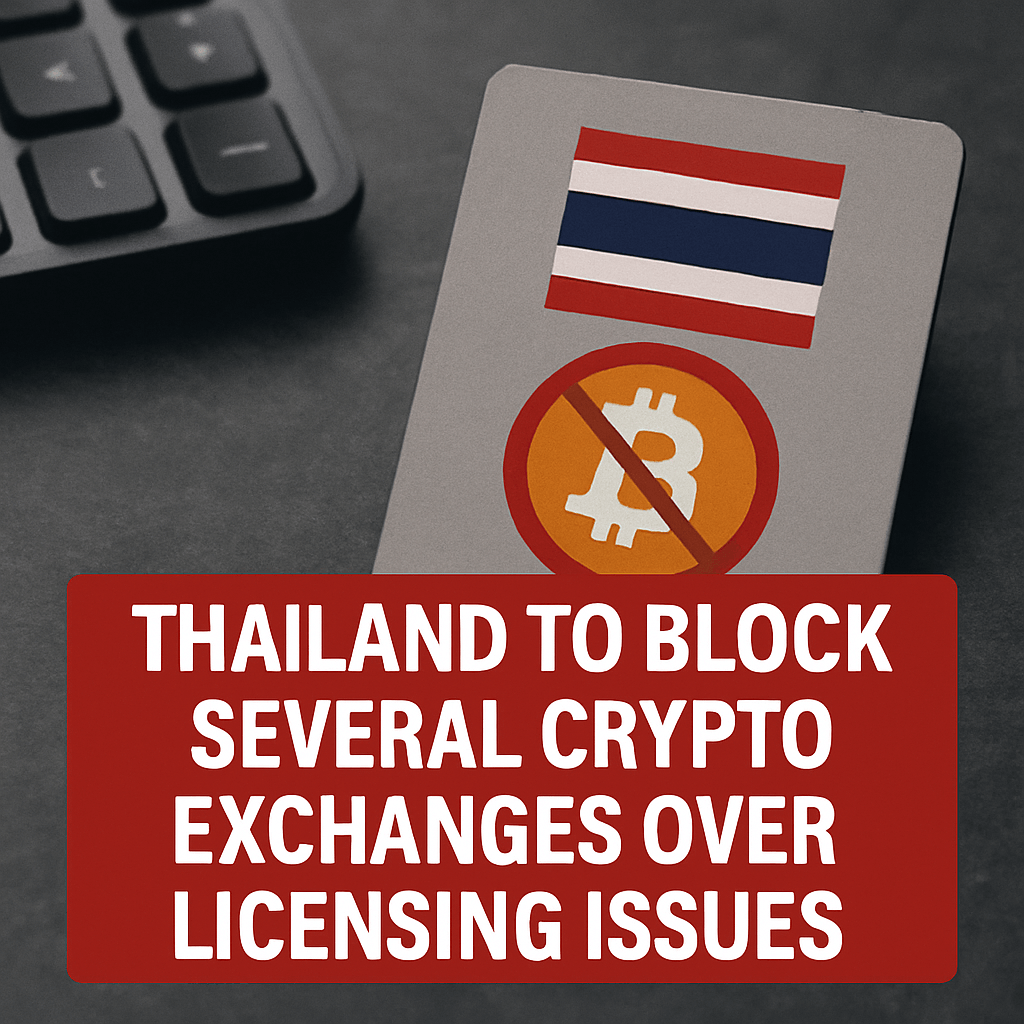Thailand to Block Several Crypto Exchanges Over Licensing Issues


Thailand’s Securities and Exchange Commission (SEC) has issued an order to nationally block access to prominent cryptocurrency trading platforms — Bybit, 1000X, CoinEx, OKX and XT.COM — effective June 28. The move comes amid concerns over their unlicensed operations and potential money-laundering vulnerabilities.
Regulatory Rationale and Official Statement
“The SEC has determined that these exchanges are operating without proper licensing under the Digital Asset Business Decree B.E. 2561 (2018) and exhibit insufficient anti–money laundering (AML) controls,” said the regulator in its public announcement.
Key points from the SEC order:
- Immediate nationwide IP blocking of affected trading platforms.
- Requirement for exchanges to obtain a Digital Asset Business Operator license.
- Mandate to implement enhanced Know Your Customer (KYC) and AML procedures.
Technical Details of the Blockade
The SEC has instructed Internet Service Providers (ISPs) to filter domain names and associated IP addresses via Thailand’s Computer Crime Act. This entails:
- Domain Name System (DNS) tampering to redirect requests to a block page.
- Deep Packet Inspection (DPI) to identify and drop traffic related to blacklisted IP ranges.
- Reverse proxy blackholing for any suspicious TLS signatures linked to the targeted platforms.
Operators are given a 48-hour compliance window, after which non-compliant ISPs face legal sanctions, including fines and potential suspension.
Impact on Thai Crypto Market
Market liquidity and user migration: Analysts warn that blocking major players may reduce liquidity by up to 15%, as these platforms collectively handle an estimated $500 million in daily trading volume from Thai IPs. Smaller regulated platforms such as Bitkub and Satang Pro may gain market share, but could face capacity constraints.
User behavior: VPN usage is expected to spike. Crypto security firm CertiK reports a 30% surge in VPN downloads in markets facing similar crackdowns. This could complicate the efficacy of the blockade, raising cat-and-mouse dynamics between regulators and end users.
Global Regulatory Context
Thailand joins a growing list of jurisdictions tightening crypto oversight:
- United States: SEC lawsuits targeting presumed unregistered exchanges and staking services.
- China: Nationwide ban on all cryptocurrency transactions since 2021.
- European Union: Implementation of Markets in Crypto-Assets (MiCA) framework from 2024.
“Regulators worldwide are converging on a paradigm where licensing and rigorous AML are prerequisites for exchange legitimacy,” says Dr. Marion Kessler, a fintech policy specialist at the University of Zurich.
Deeper Analysis: Legal and Compliance Challenges
The cost to comply with Thailand’s Digital Asset Business Decree can exceed $2 million in licensing fees, technology audits, and ongoing compliance staff. Smaller outfits often balk at these overheads.
Key legal hurdles include:
- Proof of segregated client assets held in custodian banks.
- Comprehensive transaction monitoring systems with real-time alerts.
- Periodic independent security audits to verify cold wallet safeguards.
Expert Opinions and Market Forecast
“While short-term volatility may spike, long-term market health benefits from stronger AML safeguards,” argues Ananda Srinivasan, Senior Analyst at YieldRadar Research.
YieldRadar’s model predicts a temporary 8–12% price drawdown in liquid altcoins in Asia-Pacific, followed by a recovery as regulatory clarity attracts institutional capital.
Looking Ahead: What Comes Next?
Exchanges that intend to continue serving Thai customers must:
1. Apply for local licensing by end of Q3 2025.
2. Deploy in-country data centers to meet data residency requirements.
3. Enhance cross-border AML cooperation with the Thai Anti-Money Laundering Office (AMLO).
Failure to meet these benchmarks could result in permanent exclusion from Thailand’s 70 million–strong retail market.
Conclusion: Thailand’s June 28 blockade underscores a global trend toward stricter crypto regulation and AML enforcement. Market participants and service providers will need to pivot swiftly to satisfy regulatory demands or cede ground to fully compliant competitors.
*Read on YieldRadar.info*